Alex Salmond has amazingly given a guarantee that shipbuilding will continue in Scotland, despite the UK Government, Ministry of Defence, Royal Navy and BAE saying that it will not and cannot. Keep in mind that these are the people who actually order and build the vessels.
The First Minister told the Scottish Trades Union Congress (STUC) that the Royal Navy will still procure ships from the Clyde and insisted further jobs would be secured through diversification. His address to delegates at 117th annual congress in Dundee coincided with a speech by UK Defence Secretary Philip Hammond in Glasgow, in which he warned that thousands of defence jobs will be at risk if Scotland votes for independence.
GMB Scotland delegate Alex Logan, a plater at Ferguson Shipbuilders in Port Glasgow, said: “Can I ask the First Minister to give us a guarantee that the shipbuilding industry will continue long-term in Scotland?”
Mr Salmond said: “Yes, we will. The Royal Navy will continue to order ships from Scottish yards, based on that these are the best places to produce these vessels.”
However, contrary to the above, Ian King, chief executive of BAE, has indicated in a letter submitted to the Scottish Affairs Committee that shipyards on the Clyde would likely have to close if Scotland votes for independence. The future of the yards at Govan and Scotstoun is directly tied into the Type 26 frigates and Mr King has said BAE would build the ships at a location compatible with the contract awarding process of the Ministry of Defence.
The indication comes from a letter submitted to the chairman of the Scottish Affairs Select Committee Ian Davidson, Mr King stated “the major investment decision known as Main Gate, will be made by MoD at the end of this year” after the referendum on 18 September. Mr King also said that “in the event of a Yes vote, and as we have made clear, we would be required to discuss the future of the Type 26 programme with our customer, the MoD. It would be for the MoD to determine how the vote affects the final decisions they have yet to make on the programme, including the future location of the build of the ships. We would take our customer’s lead in these circumstances. We cannot determine this outcome in advance, or without the direction of the MoD.”
Mr Davidson said: “This shows clearly that, as we have previously stated, the only guarantee for the future of shipbuilding on the Clyde is for Scotland to remain part of the United Kingdom.” A view shared by the industry and MoD itself.
It is well understood in industry that companies based in an independent Scottish state would no longer be eligible for contracts that the UK chose to place or compete domestically for national security reasons (due to Article 346, I’ll explain that later in the article). Where they could continue to compete, they would be pitching for business in an international market dominated by major economic powers.
Other than procurement activity undertaken during the World Wars, the UK has not had a complex warship built outside of the UK since the start of the 20th century at least. All the Royal Navy’s new complex warships are being built in UK shipyards and the UK Government remains committed to utilising the strengths of UK industry in this specialist and complex area. The MOD has a 15-year Terms of Business Agreement with BAE Systems MNS, giving the company certainty about the UK Government’s commitment to a minimum level of capacity in the areas of warship design and build work, including the Type 26 as mentioned above, and elements of support covering complex warships. The MOD has a similar 15-year agreement with Babcock Marine in respect of support work for surface warships and submarines.
Scotland’s Deputy First Minister, Nicola Sturgeon, has also recently been criticised by trade union members and the defence industry for suggesting that Britain’s new warships, Type 26 frigates, would be built in Scotland if the nationalist campaign for independence was successful, despite Ministry of Defence sources (you know, the people who order the ships!) insisting that will not happen. Shipbuilding union leaders told Ms Sturgeon to stop “using” them by claiming that British warships would continue to be built on the Clyde in the event of a ‘Yes’ vote as they know that not to be the case.
Ms Sturgeon was refuted by John Dolan, GMB convener at the Scotstoun yard in Glasgow, when she met with the unions following BAE Systems’ announcement that 1,775 shipbuilding jobs are to be lost across the UK in their three facilities. Mr Dolan was responding to Ms Sturgeon’s remarks this week when she said Portsmouth’s closure meant that the Clyde was now the “only” place to build the ships in the UK.
Mr Dolan pointed out that there were several yards south of the Border where the frigates could be built.
“She was saying that the Clyde is the only game in town. I’m afraid it is not, Portsmouth is still alive. It doesn’t close until next year some time. There’s shipbuilders in Cammell Laird in Liverpool. You have got the A&P Group on the Tyne, who are shipbuilders, and you have got Barrow in Furness. So to say if Scotland goes independent we will still be building Type 26 frigates. Listen, I assure you that if we go for independence we will not be building. We have been told quite clearly by the UK government … personally, I have been told quite clearly that will not happen.”
Another obstacle for the Scottish ‘Yes’ campaign is that companies based in an independent Scottish state would no longer be eligible for contracts that the UK chose to place or compete domestically for national security reasons due to Article 346 of the treaty on the functioning of the European Union. Where they could continue to compete, they would be fighting for business in an international market dominated by major economic powers.
There’s also the matter of contracts using US technology, defence contractors that work with items or technology of US origin are also covered by undertakings given in accordance with the US International Traffic in Arms Regulations (ITAR), under which any change to an existing US export licence requires US State Department approval. An independent Scottish state would be a third-party country, not covered by existing UK-US ITAR agreements. UK companies would not have authority to transfer items and information that is subject to ITAR licence to their subsidiaries or other companies in an independent Scottish state or to a Scottish national, without US approval, anymore than it could transfer such material to organisations or individuals in other foreign states. Every licence held by companies in Scotland working on ITAR-controlled items would have to be re-approved if Scotland became independent which would take years.
The UK Government is committed to using the exemption under Article 346 of the Treaty on the Functioning of the European Union to retain an industrial capability in the UK to protect its operational advantage or freedom of action where it is strictly necessary for national security. If at any time the UK Government were to decide not to apply an Article 346 exemption, it would be obliged to adhere to the rules governing open competition. In these circumstances, if an independent Scottish state were a member of the EU, the UK would be legally obliged not to discriminate on the grounds of nationality and would therefore treat all potential suppliers from EU member states on an equal basis. If an independent Scottish state were not in the EU, suppliers established there would have no right to participate in defence procurements under EU Defence and Security Public Contracts Regulations, although the UK would have discretion to allow such participation. The UK would only do business with suppliers in an independent Scottish state where they demonstrated that they offered best value for money.
The future of the shipbuilding industry in an independent Scottish state might therefore depend on orders from its government and any export orders that it might be able to obtain in the international market. On this, the House of Commons Scottish Affairs Committee has concluded that Scottish shipyards “will have little prospect of winning export work” and that the “needs of any Scottish Navy will be insufficient to maintain capacity”.
This concern was also expressed in evidence to the Committee by representatives of the Confederation of Shipbuilding and Engineering Unions, who commented that “unless an independent Scottish Government could provide equivalent-type orders [which it cannot do], we would be greatly reduced or completely finished as a shipbuilding industry”.
Significantly increasing Scotland’s share of the global naval ship export market would be very challenging. The existing major naval ship exporting nations are: USA, Korea, Russia, France, Germany, Turkey and the Netherlands. These are likely to be joined soon by Brazil and Japan. Servicing and repair of ships takes place in all of these countries plus Chile, and this list is likely to be joined by the United Arab Emirates. Many of these nations benefit from having significant sized navies of their own, with economies of scale supporting competitiveness in the international market. India, Pakistan and China also aspire to develop their own industries, and would benefit from low production costs in line with their status as developing nations.
It stands to reason that an independent Scottish state would certainly see lower domestic demand for defence goods due to a much smaller budget. It would also lose the support to exports provided by the UK’s international defence engagement and facilitated by the UK’s global reputation. The sustainability of the defence industry in Scotland would be largely impossible in the event of a vote in favour of leaving the UK.


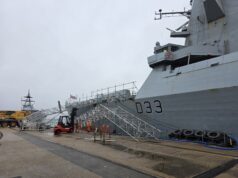
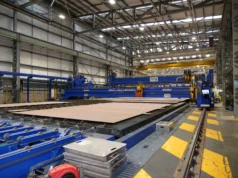
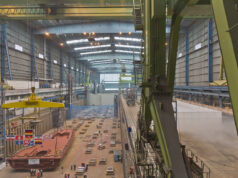

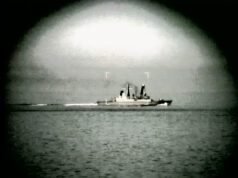
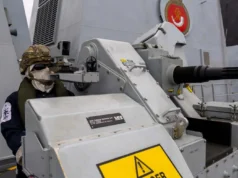



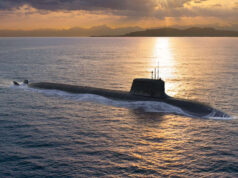

The big question is will the UK be able to afford more ships anyway?
As it is they can’t afford to put planes on their aircraft carriers, so how can the afford mord more ships?
Perhaps they’ll build them with no weapons.
The UK is now a fur coat and no knickers state.
The next generation of frigates has been budgeted for and I am unsure what you mean regarding “they can’t afford to put planes on their aircraft carriers”, as the first batch are already being ordered and will start flying from the vessel in 2017/18.
Forgive me if i am wrong here, lets say Scotland votes yes ok. As soon as its announced the shipbuilding shall stop automaticcally on the clyde or elsewhere due to the vote? So basically stop work on the announcement of the vote and move the ships south? Isnt that a breach of contract?
As far as I understand it the UK have no legal way under EU law of forcefully continuing the production of ships in Scotland…
– Pre-existing contracts are tied to the UK, the companies who have the contracts won’t lose the contracts, rather they will be obliged to move their operations to within the UK sometime between the “yes vote” if it occurs and independence being formally signed over (of course depending on the wording of the contract these companies might be able to argue that the contracts has been breached and claim damage from the UK to move their operations).
– New contracts will then either be made exclusive to the UK or will have to be open to the entire EU… which either way companies in Scotland won’t win the contracts (either due to lack of competitiveness or ineligibility).
Much of the key “yes campaigns” promises are not guaranteed in anyway, and sometimes the complete opposite is actually guaranteed to happen!
My biggest concern is by the time the carriers are fully operational will the aircraft designated for them already be outdated….?
Please remember that the uk is a close partner in the development of the f-35, the UK and Scotland have contributed a lot of brain power and innovation to the project. This is and will be worth billions to our economy as well as allowing the future generations a place to develop their skills and trade, and the same is said for the QE class. I won’t bring current political issues in, but if the UK is now a ‘fur coat and no knickers state’ then Scotland could be left as a ‘trenchcoat and newspaper pants state’! The technology and defence sector is thriving, and while we don’t export warships or jets to any great level anymore, we do export the expertise and technologies that many other countries can’t match.
@Jon
Thete would be no breach of contract. The contract to buold the Type 26 wont be announced until after the vote.
a component cotract has been awarded, but this is for lond lead time, non-classified parts.
But, Alex Samond alias mel gibson (Braveheart) said it so it must be true… in his dreams…
Here is the part that says it all and proves that Eck has more faces than the town clock:- It is well understood in industry that companies based in an independent Scottish state would no longer be eligible for contracts that the UK chose to place or compete domestically for national security reasons (due to Article 346, I’ll explain that later in the article). Where they could continue to compete, they would be pitching for business in an international market dominated by major economic powers.
the only ones who have lost there jobs were paid off under the united kingdom not from the Scottish goverment
Not sure where you are getting your information, Daily Mail maybe? But in actuality the first RAF squadron, 617 squadron, will form in the UK in 2016 with the F-35B. There will be a 2nd squadron 809 NAS, up and running before the QE class enter service. Numbers will steadily rise after that.
No knickers? Well, the MOD has allocated £160 billion for new defence equipment over the next decade, this includes a new class of frigates for the RN.
http://www.contracts.mod.uk/the-defence-equipment-plan-a-decade-of-prudence-and-clarity/
I work in the yards an with all the top secrets etc England will not give work to Scottish workers.Alex is a liar that wants to make a name for himself.once out there’s no coming back.Ireland Norway what shape are they in ? What shape will we be in once English company’s leave
Scotland and England will both lose if we split it will not serve the uk as a whole its plain to see we are better together
Norway… you mean the fourth richest country in the world.. that Norway?
Yes, the one that was in major depression for over 40 years since independence. The same one that is now being crippled by inflation, 25% VAT. Their only saviour is the oil revenue. And don’t compare Scotland to Norway in that respect: Norway still owns 70% of the oil in their waters, so they profit from the sale of that oil plus the production tax on the rest. Nearly all Scottish oil is owned by foreign investors, Scotland won’t profit from the sales, only the production tax. A lot less profitable than Norway’s oilfields.
How were they able to award the contract for 4 tankers (with helicopter capability) to Korea ?
Because BAE declined to bid for it. With no UK tenders the MoD went for the best value for money option, which is S Korea (who incidently do build very nice ships)
Because the four tankers in question were built for the Royal Fleet Auxiliary and are crewed by Merchant Navy personnel. Consequently they are not regarded as warships. In any case, whilst the tankers will be built in South Korea, most of the systems and military aspects of them will be added after construction in the UK, consequently they don’t really involve much sharing of defence technology.